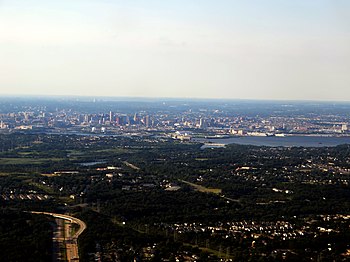Baltimore, Maryland: Difference between revisions
Pat Palmer (talk | contribs) |
mNo edit summary |
||
| Line 6: | Line 6: | ||
Because Baltimore is only 40 miles (64 km) northeast of Washington, D.C., it is regarded to be part of a combined statistical area called Washington–Baltimore, which has close to ten million people. | Because Baltimore is only 40 miles (64 km) northeast of Washington, D.C., it is regarded to be part of a combined statistical area called Washington–Baltimore, which has close to ten million people. | ||
Baltimore has a violent crime rate that ranks well above the national average. | Baltimore has a violent crime rate that ranks well above the national average.[[Category:Suggestion Bot Tag]] | ||
Latest revision as of 06:00, 16 July 2024
Baltimore, Maryland is the largest city in the Maryland, located along the tidal portion of the Patapsco River, an arm of the Chesapeake Bay. In 2021, it had 576,498 people (well more than half of whom are African American), and the metropolitan area 2,333,000. The independent city is often referred to as Baltimore City to distinguish it from surrounding Baltimore County. With hundreds of identified districts, Baltimore City has been dubbed "a city of neighborhoods," and is nicknamed Charm City.
Because Baltimore is only 40 miles (64 km) northeast of Washington, D.C., it is regarded to be part of a combined statistical area called Washington–Baltimore, which has close to ten million people.
Baltimore has a violent crime rate that ranks well above the national average.
